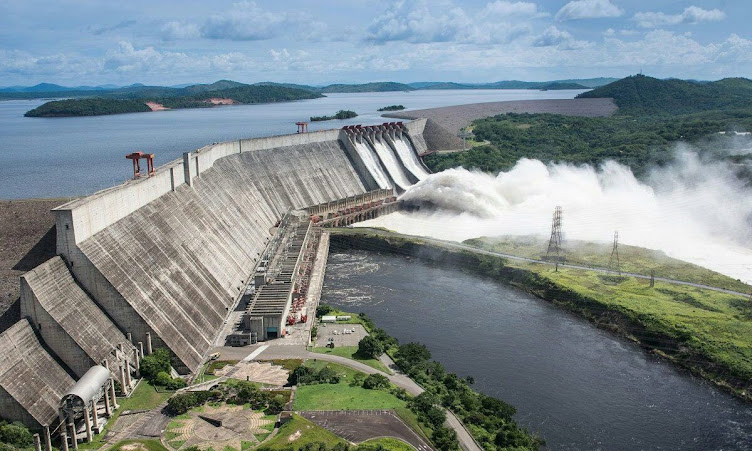The mark of
a visionary leader in the planning and execution of the single most
transformative development project in Venezuelan history.
"Long-term
planning does not deal with future decisions, but rather with the future with
current decisions." — Peter Drucker
The hydroelectric development of the Caroní River stands as a unique milestone in Venezuela’s history. Beyond its technical and energy significance, it represents the only comprehensive development project in the nation’s history that successfully integrated strategic foresight, political will, and a modern institutional framework dedicated to national growth. Within this context, the figure of General Rafael Alfonzo Ravard emerges with profound historical importance: his leadership and managerial acumen transformed the Caroní’s hydroelectric potential into a powerful engine of national progress, setting an unparalleled precedent for development in Venezuela.
Hydroelectric Potential of the Guayana Region
The Caroní
hydroelectric project cannot be reduced merely to an engineering feat or a large-scale
energy initiative. It uniquely embodies a long-term vision, institutional
coherence, and transformative ambition. In contrast to numerous fragmented or
unfinished 20th-century projects, the Caroní hydroelectric complex realized a
comprehensive national development model—rooted in planning, technological
innovation, and effective collaboration between the state and society.
Central to
this achievement is General Rafael Alfonzo Ravard. A trained military engineer
with exceptional organizational skills, Alfonzo Ravard not only spearheaded the
technical execution of this megaproject but also forged an institutional vision
that transcended the energy sector to become a paradigm of public management
and social responsibility. His decisive role in founding the Venezuelan Guayana
Corporation (CVG) and shaping a development model that harmonized natural
resources, infrastructure, and human capital was instrumental in steering
Venezuela toward sustainable progress.
This
project transformed not only the country’s electrical landscape but also its
historical trajectory. It proved that it is possible to conceive, plan, and
complete an ambitious national undertaking with efficiency, transparency, and a
steadfast commitment to the future. To analyze the historical dimension of the
Caroní hydroelectric development is, therefore, to revisit and honor Rafael
Alfonzo Ravard’s legacy—recognizing his leadership as one of the few truly
holistic development experiences to have propelled Venezuela forward.
Rafael
Alfonzo Ravard was a Venezuelan military officer, engineer, and businessman who
had an outstanding career as a public official. He served as president of
Petróleos de Venezuela (PDVSA) and the Corporación Venezolana de Guayana (CVG),
among other key institutions.
In 1953, he
was appointed president of the Study Commission for the Hydroelectric
Development of the Caroní River. The following year, he chaired the World
Energy Council, after which Venezuela, first through the commission and later
through EDELCA (Electrificación del Caroní), became a permanent member. In
1958, he assumed the presidency of the Corporación Venezolana de Fomento
(Venezuelan Development Corporation), and in December 1960, he was named
president of the CVG.
In 1961,
under his leadership, the CVG signed an agreement with the Joint Center for
Urban Studies of the Massachusetts Institute of Technology (MIT) and Harvard
University to provide technical assistance in the planning and development of a
new, avant-garde urban center: Puerto Ordaz.
The
completion of the Caroní River development studies led to the construction of
Macagua I, the country’s first hydroelectric plant, designed to supply energy
for Venezuela’s future industrialization. At the same time, the installation of
the national steel complex advanced, as electric furnaces were essential for
processing iron ore.
Between
1965 and 1974, Alfonzo Ravard simultaneously served as president of EDELCA and
vice president of Aluminios del Caroní (Alcasa). In 1973, he also assumed the
presidency of Venalum, all under the auspices of the CVG.
In 1963,
the Guri hydroelectric project—at the time the largest in the world and one of
the most ambitious engineering feats in Venezuelan history—was launched.
Beyond energy and heavy industry, Alfonzo Ravard promoted agricultural development projects to supply agro-industrial products to the region. In 1969, he spearheaded the Uverito reforestation project in southern Monagas, successfully planting 26 million Caribbean pine trees, a milestone in sustainable forestry.
GUAYANA DEVELOPMENT PROGRAMME
https://juanguzman88.blogspot.com/2023/10/guayana-development-programme.html








No comments:
Post a Comment